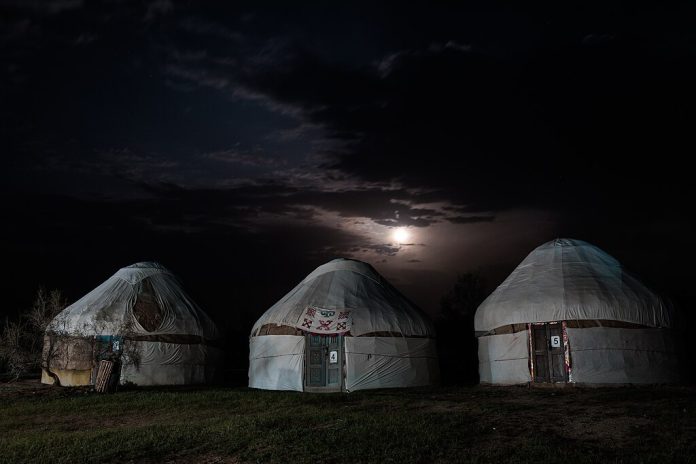Few regions in global politics face security challenges as deeply interconnected with economics, transport, climate, and water resources as Central Asia.
For decades, attempts by external actors to establish a stable system of collective security here have remained fragmented.
In recent years, however, the region itself has developed a model of cooperation based on trust, transparency, and shared responsibility. The Consultative Meetings of the Heads of State of Central Asia have emerged as a working platform for establishing a framework for regional decision-making, playing a central role in this transformational process.
The Seventh Consultative Meeting, which opened on November 16, marked the starting point of a new phase. Amid high turbulence in global markets, intensifying energy competition, growing climate risks, and persistent instability surrounding Afghanistan, the countries of the region have begun to form a comprehensive system of collective resilience.
In his speech, President of Uzbekistan Shavkat Mirziyoyev emphasized the core principle of this approach: “Without transport connectivity, food security, rational water use, and sustainable energy, it is impossible to build genuine regional security”.
This statement has become the conceptual framework for Central Asia’s new security philosophy, one that is systemic rather than reactive, focused on long-term stability rather than responding to individual threats.
Uzbekistan, in cooperation with its neighboring countries, has become the state to offer the region a comprehensive 21st-century security model. It is based on modernizing economies, developing transport corridors, supporting green energy, combating corruption, enhancing government transparency, and shaping a unified water and climate policy.
Water diplomacy, the regulation of transboundary resources, the implementation of water-saving technologies, and the advancement of climate research are all becoming elements of a single strategic system. The humanitarian component is equally important as the region’s population is young, and Uzbekistan is actively promoting educational programs, scientific exchanges, and youth projects as a foundation for long-term regional stability.
This new security concept has become a key area of rapprochement between Uzbekistan and the United States. Washington has long viewed Central Asia through a security lens, but in recent years, the focus has shifted from military instruments to sustainable development.
In this context, the positions of the two countries align exceptionally well. Uzbekistan proposes a model that ensures security through systemic modernization: developing a sustainable economy, transparent governance, fighting corruption, diversifying energy sources, building climate resilience, and integrating Afghanistan into regional economic chains. The U.S. sees this approach as the foundation for fostering an independent, stable partner in the heart of Eurasia.
The year 2025 became a pivotal moment in Uzbek-American relations. In the fall, a substantive visit by a delegation from Uzbekistan to Washington took place, after which the bilateral dialogue acquired a strategic dimension.
The parties agreed to develop the Trans-Caspian Corridor, support the green economy, expand cooperation on critical minerals, promote digitalization, reform public administration, and increase transparency.
A significant step was the decision to introduce a visa-free regime for U.S.citizens starting January 1, 2026 – a move that strengthens trust and creates fundamentally new conditions for university, scientific, business, and cultural ties. Washington increasingly views Uzbekistan as a state capable of shaping regional solutions rather than yielding to external pressure.
The issue of Afghanistan remains central to all the region’s external partners, and Uzbekistan holds a unique position in this regard. The country is promoting the idea of Afghanistan as a potential bridge between Central and South Asia, rather than merely a source of threats. This aligns with the strategic interests of the U.S.: reducing long-term risks of radicalization, preventing a humanitarian collapse, and creating a stable economic environment around Afghanistan.
Transport connectivity has become a key factor in the new regional security architecture. Uzbekistan is forming a nodal network of corridors capable of fundamentally changing the region’s economic geography.
The Trans-Caspian route, the North–South railway lines, the expansion of crossings with Kazakhstan and Turkmenistan, the Termez–Kabul–Pakistan project, and the digitalization of logistics – all of this is turning Central Asia into the world’s largest land-based logistics hub. It is Uzbekistan that sets the parameters for tariff policy, coordinates infrastructure modernization, and integrates the region’s main routes into a unified system.
Today, Central Asia is no longer an object of foreign policy, but a subject. The region is increasingly shaping a new logic of cooperation for the region through development, sustainability, reciprocity, and systemic modernization.
As the initiator of the Consultative Meetings and the moderator of key regional decisions, Uzbekistan is effectively shaping a new architecture for sustainable development in Central Asia – an architecture in which security, the economy, transport, energy, and climate constitute a unified strategic system. And it is this system that will become the foundation for the region’s stability for decades to come.










